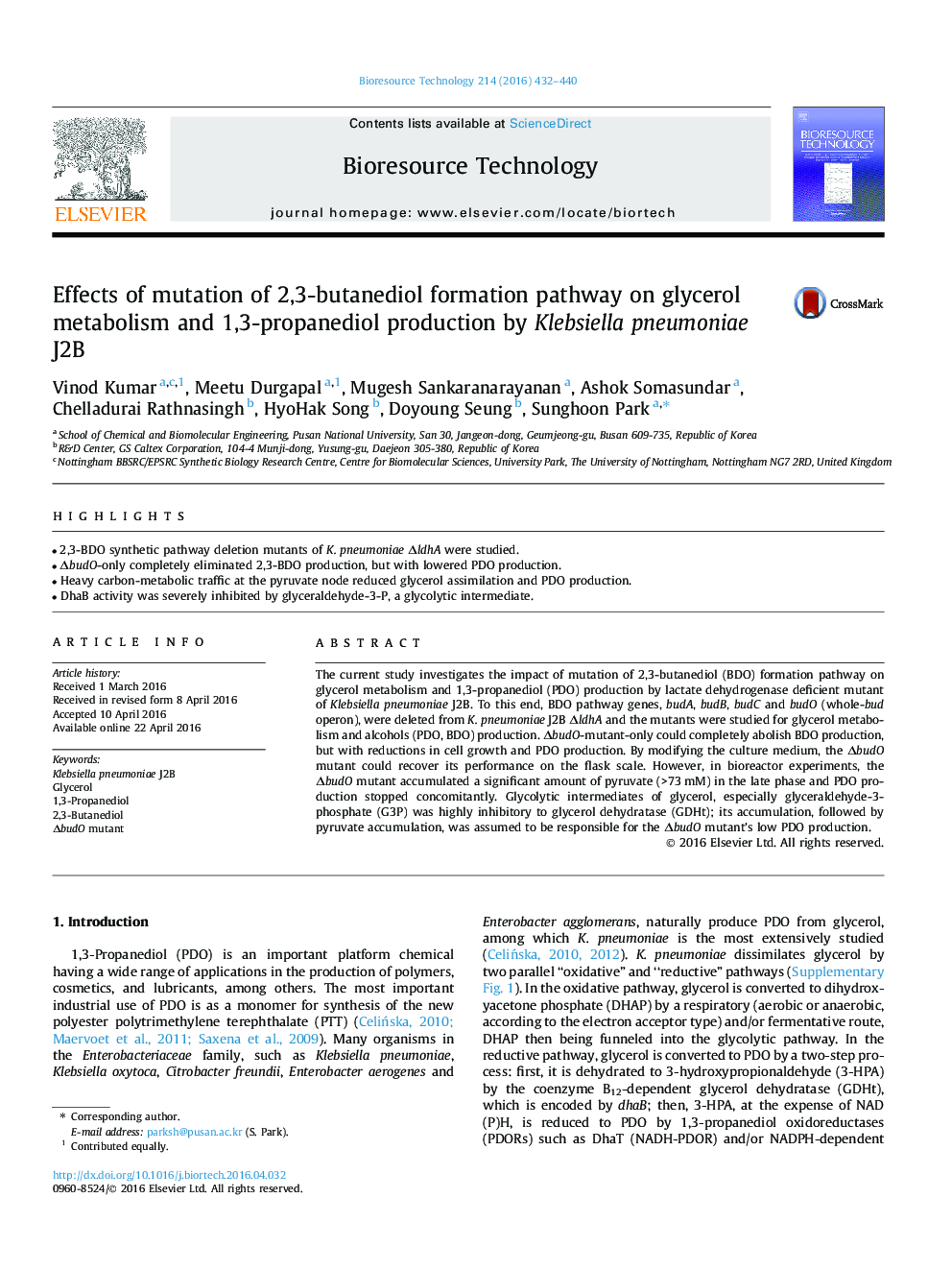| Article ID | Journal | Published Year | Pages | File Type |
|---|---|---|---|---|
| 679102 | Bioresource Technology | 2016 | 9 Pages |
•2,3-BDO synthetic pathway deletion mutants of K. pneumoniae ΔldhA were studied.•ΔbudO-only completely eliminated 2,3-BDO production, but with lowered PDO production.•Heavy carbon-metabolic traffic at the pyruvate node reduced glycerol assimilation and PDO production.•DhaB activity was severely inhibited by glyceraldehyde-3-P, a glycolytic intermediate.
The current study investigates the impact of mutation of 2,3-butanediol (BDO) formation pathway on glycerol metabolism and 1,3-propanediol (PDO) production by lactate dehydrogenase deficient mutant of Klebsiella pneumoniae J2B. To this end, BDO pathway genes, budA, budB, budC and budO (whole-bud operon), were deleted from K. pneumoniae J2B ΔldhA and the mutants were studied for glycerol metabolism and alcohols (PDO, BDO) production. ΔbudO-mutant-only could completely abolish BDO production, but with reductions in cell growth and PDO production. By modifying the culture medium, the ΔbudO mutant could recover its performance on the flask scale. However, in bioreactor experiments, the ΔbudO mutant accumulated a significant amount of pyruvate (>73 mM) in the late phase and PDO production stopped concomitantly. Glycolytic intermediates of glycerol, especially glyceraldehyde-3-phosphate (G3P) was highly inhibitory to glycerol dehydratase (GDHt); its accumulation, followed by pyruvate accumulation, was assumed to be responsible for the ΔbudO mutant’s low PDO production.
